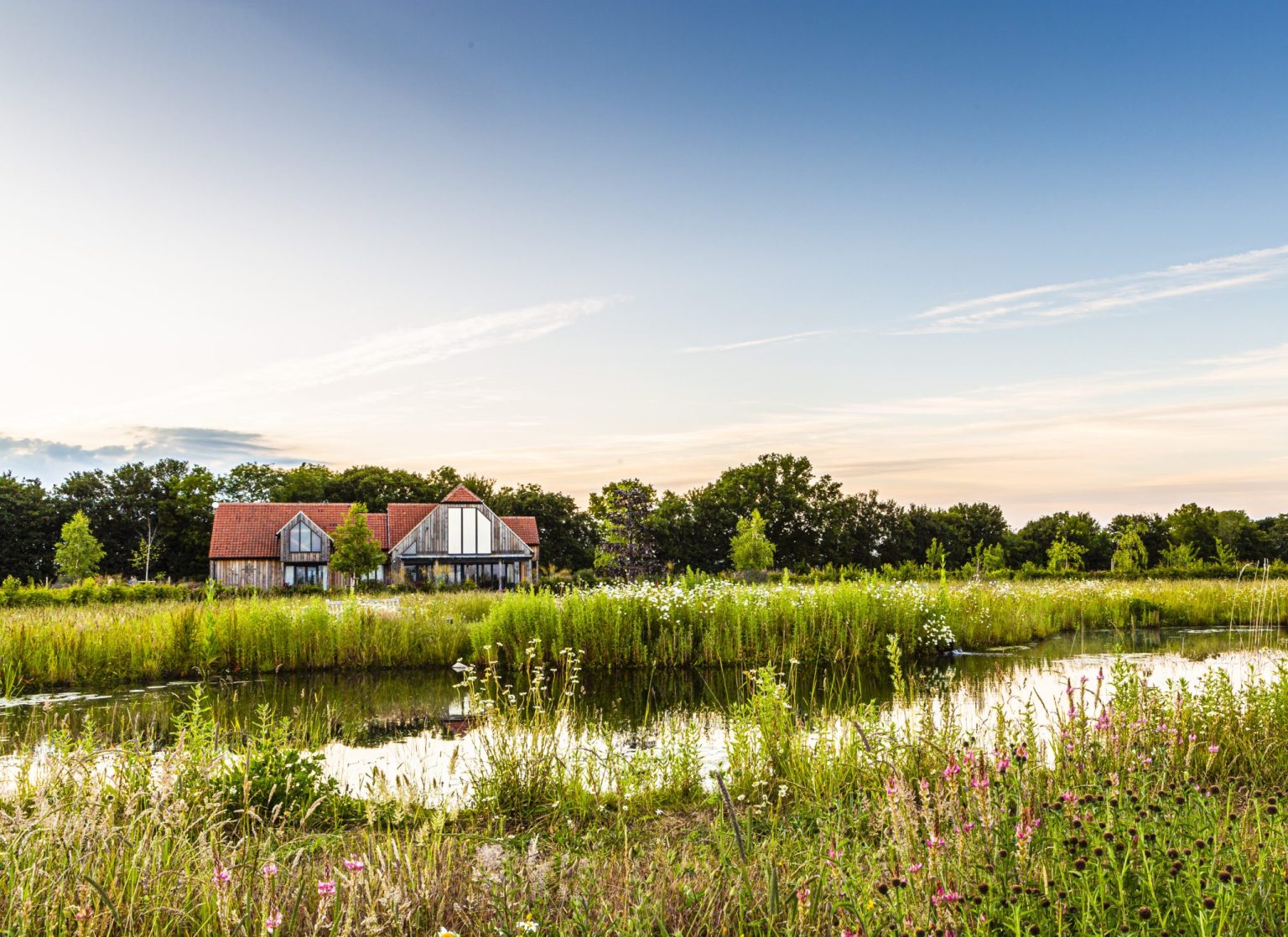
Image: Old Park Meadow Natural Burial Ground, Essex
As the urgency to combat climate change intensifies, more individuals are considering how to minimise their environmental impact even after life ends. For those who aim to leave a lighter footprint on the planet, numerous eco-friendly end-of-life options are emerging, ranging from natural burials to human composting and beyond. Here, we explore the latest sustainable practices and innovations available in the UK.
Rethinking Traditional Methods: Burial and Cremation
Traditional cremation and burial are the most common methods of body disposition in the UK, but both come with significant environmental concerns. In 2019, 77% of deaths in Britain resulted in cremation, according to The Cremation Society. However, cremation emits roughly 400 kilograms of carbon dioxide per body—equivalent to a flight from London to Rome. Additionally, it releases toxic chemicals such as mercury from dental fillings and other prosthetic materials.
While burials generally have a lower carbon footprint, they are not without issues. Embalming fluids can seep into the ground, and coffins often use non-renewable materials like wood and metal. Traditional burial sites also consume valuable land, and in many areas, space is running out. Moreover, deeper graves can lead to anaerobic decomposition, releasing harmful gases.
For those committed to sustainable practices, innovative alternatives and eco-friendly materials are available. Locally made pine or willow coffins, for example, are often more sustainable than the standard MDF (medium-density fibreboard) coffins commonly used by funeral directors.
Natural Burial: Returning to the Earth
What is it? A natural burial—also known as an eco burial—involves placing the body in a biodegradable coffin or shroud in a shallow grave. These burials often occur in designated natural burial grounds, such as woodlands or meadows, without permanent markers, preserving the surrounding habitat.
Availability: There are over 360 natural burial sites across the UK.
Why Choose It? Natural burial is considered one of the most environmentally friendly options. Decomposition occurs naturally, enriching the soil and nurturing plant growth.
Burial Suits: A Unique Twist
What is it? Popularised by celebrity cases such as Luke Perry, burial suits—like the "mushroom suit"—are designed to enhance decomposition while neutralising environmental toxins. Created by green burial pioneers like Coeio, these suits incorporate mushroom spores to facilitate eco-friendly decomposition.
Availability: Not currently available in the UK.
Challenges: While the concept has captured public imagination, UK burial laws requiring at least two feet of soil above the coffin may impede the effectiveness of mushroom suits. Nonetheless, ongoing innovation could make this a viable option in the future.
Biodegradable Urns: Growth from Ashes
What is it? For those opting for cremation, biodegradable urns can hold ashes alongside seeds or seedlings. The urn is planted in the ground, where it is designed to decompose and encourage tree growth.
Availability: Widely available in the UK.
Considerations: Though these urns are eco-friendly, ashes themselves—composed of bone meal—can hinder plant growth. Natural burial may be a more effective choice for fostering tree development.
Eternal Reefs: A Legacy Beneath the Waves
What is it? Eternal reefs combine cremation ashes with materials to create artificial reef structures. These memorial reefs are placed on the seabed to support marine ecosystems and combat habitat loss.
Availability: Currently available in the UK at a site near Weymouth.
Challenges: Eternal reefs require specialised arrangements and may not be accessible to all. However, they offer a meaningful way to contribute to ocean conservation.
Body Donation: Giving Back Through Science
What is it? Donating one’s body to medical science helps train healthcare professionals and advance research. After use, bodies are typically cremated, with expenses often covered by the institution.
Availability: Widely available across the UK.
Important Notes: Not all bodies are accepted, as medical schools may have specific requirements or limits on donations. Families should prepare alternative plans in case the body is declined.
Human Composting: The Future of Eco-Friendly Disposition
What is it? Human composting, or terramation, involves placing the body in a vessel with organic materials like wood chips and straw. Over four to six weeks, the body transforms into nutrient-rich soil that loved ones can use to nourish plants or trees.
Availability: Not yet available in the UK but operational in the US, where facilities like Recompose are leading the way.
Potential: This innovative method has shown promise in reducing carbon emissions and returning nutrients to the earth. Though the UK already offers natural burial as an alternative, human composting could provide an appealing new option.
Resomation (Alkaline Hydrolysis): Water Over Fire
What is it? Resomation, or water cremation, uses water and potassium hydroxide to break down the body at high temperatures. After four hours, only the bones remain, which are pulverised into powder. This process has been used in the US for decades.
Availability: Currently unavailable in the UK due to regulatory and logistical challenges, including water authority concerns and burial legislation.
Outlook: Resomation offers a lower-carbon alternative to traditional cremation, and ongoing discussions could lead to its future adoption in the UK.
Promession: The Science of Freezing
What is it? Promession involves freezing the body with liquid nitrogen and then breaking it into a powder. The remains can be buried in an eco-friendly coffin, allowing them to decompose fully within six months.
Availability: Not yet available in the UK.
Challenges: While conceptually promising, promession remains untested and unavailable. Its development would require extensive research and regulatory approval.
Choosing a Greener Goodbye
For those looking to align their end-of-life plans with their environmental values, there is a growing array of options. Natural burials, biodegradable urns, and eternal reefs are among the practices already available in the UK, while innovative techniques like human composting and resomation are on the horizon.
As awareness of environmental concerns grows, so too does the demand for sustainable funeral practices. By exploring these options, individuals can ensure that their final act leaves a positive legacy for the planet.
Related Articles:
Eco-Friendly Alternatives to Baloon Releases
Should You Choose Burial Or Cremation?
Where to Get Help with Funeral Costs